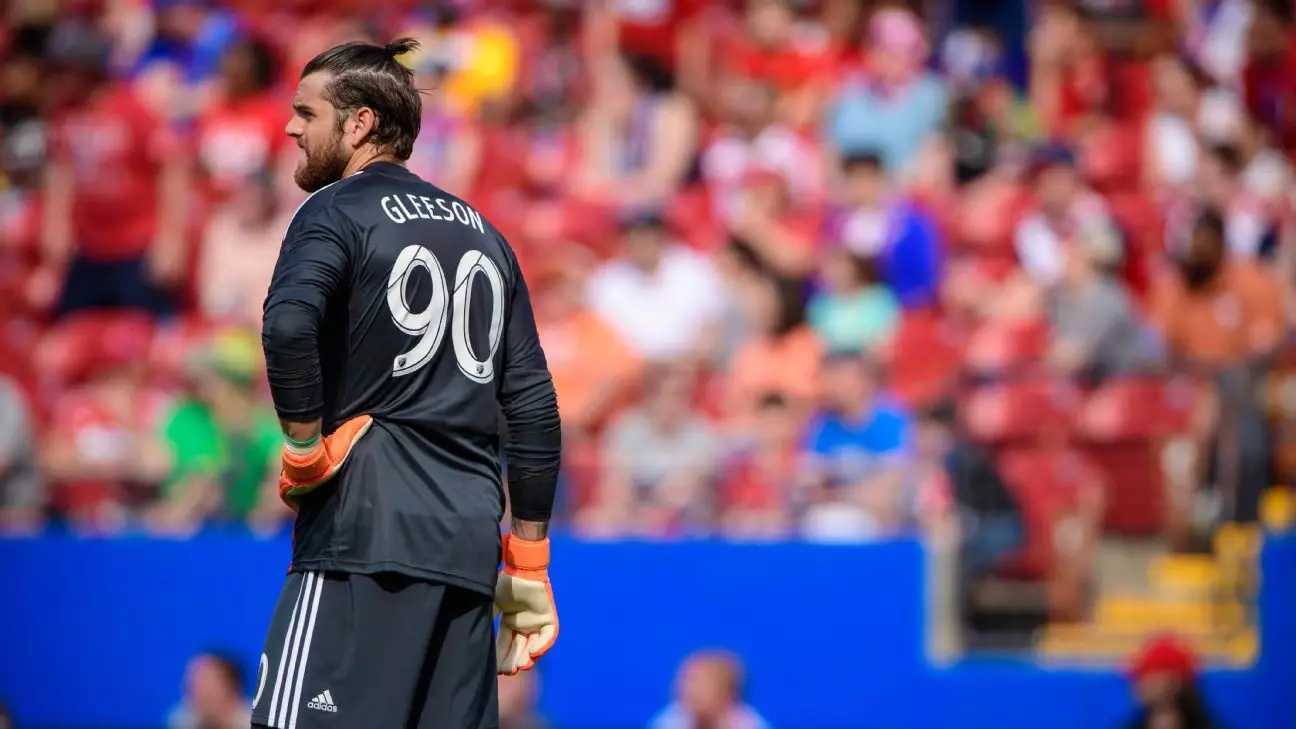In a landmark legal decision, former Portland Timbers goalkeeper Jake Gleeson triumphantly emerged from his medical malpractice suit against Dr. Richard H. Edelson, the team doctor who allegedly failed him. This verdict, which awarded Gleeson over $20 million, is not merely a number — it represents the culmination of a painful six-and-a-half-year ordeal marked by extensive medical misadventures. Gleeson, who initially sought a solution for stress fractures in his legs in 2018, found himself grappling with the reality of severe infection and chronic pain due to alleged negligence.
Gleeson, now 34, bears the burdens of 14 surgeries, a testament to the physical and emotional turmoil inflicted upon him. He describes the experience as “something I wouldn’t wish on my worst enemy.” Living with pain and the psychological impact of losing his professional career has become a full-time struggle. This case sheds light on the essential trust placed in medical professionals and the profound consequences when that trust is broken.
Systemic Issues: Beyond Individual Liability
Gleeson’s victory raises critical questions about systemic failures within the medical field, particularly regarding surgical protocols. The lawsuit centered around the assertion that Dr. Edelson violated standard sterility practices, leading to infections that severely impaired Gleeson’s quality of life. The alleged use of Immediate-Use Steam Sterilization (IUSS) was a significant point of contention during the trial. While the defense argued that infection is a common risk in surgeries, the jury demonstrated a clear consensus on negligence, holding Edelson accountable for his actions.
The implications of this case extend beyond Gleeson: they call into question the broader healthcare practices that govern surgical procedures and the importance of stringent adherence to sterilization protocols. This case serves as a stark reminder of the potential dangers posed by complacency in medical practices. It also highlights the necessity for reform and continuous education within healthcare institutions about maintaining safety standards.
The Power of Advocacy: Gleeson’s Mission Forward
Emerging from this harrowing experience, Gleeson expressed a strong desire to become an advocate for patients, emphasizing the responsibility of medical professionals when it comes to patient safety. His powerful assertion that consent forms should guarantee a commitment to meticulously adhering to established medical standards resonates deeply. This sentiment should prompt all individuals, regardless of their professional background, to recognize the critical nature of transparency and integrity in medical care.
Gleeson’s journey exemplifies the importance of holding practitioners accountable. He underscored the universal need for robust medical ethics, regardless of a patient’s status, wealth, or profession. Whether one is an elite athlete or an office worker, standard medical protocols must be upheld to protect and preserve life.
Community Support: The Role of Teammates and Allies
An integral part of Gleeson’s emotional resilience has been the unwavering support from his former teammates and community. Their testimonies during the trial not only shed light on the collective shock and concern surrounding Gleeson’s health but also highlighted the emotional toll such experiences take on relationships. Amidst a competitive environment where individual achievements take precedence, Gleeson’s plight united former players, demonstrating that camaraderie and support extend far beyond the field.
Moreover, this shows the often-overlooked aspect of mental health in sports. The emotional scars left by such life-altering experiences, coupled with the sudden loss of one’s career, can have profound effects on athletes’ mental well-being. The solidarity exhibited by his former teammates illustrates the importance of communal support systems in times of crisis.
Anticipating the Future: Legal Ramifications and Next Steps
With the jury’s decision in favor of Gleeson, the legal landscape surrounding medical malpractice is poised for potential change. While an appeal from Dr. Edelson’s side is anticipated, the current ruling reinforces the significance of thorough medical practices and the potential repercussions of negligence. The awarded damages serve as both a punitive measure against malpractice and a financial lifeline for Gleeson as he navigates a future where traditional therapies may never fully alleviate his pain.
This case also serves as a wake-up call for healthcare providers across the board, urging a renewed commitment to patient welfare. It calls upon medical professionals not only to adhere strictly to protocols but also to engage in open dialogues about risks with their patients, ensuring informed and safeguarded consent every time they go under the knife.
As Gleeson moves forward following this verdict, he embodies a new wave of advocacy that transcends his personal struggles — a movement advocating for accountability, transparency, and respect for every patient’s right to safe medical treatment. This battle, fought not just for compensation, but for justice, stands as a powerful testimony to the resilience of the human spirit when confronted with adversity.

